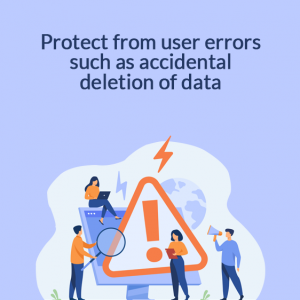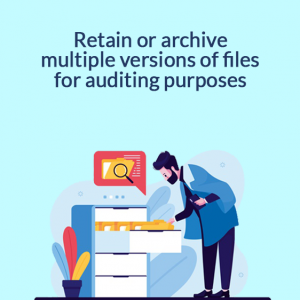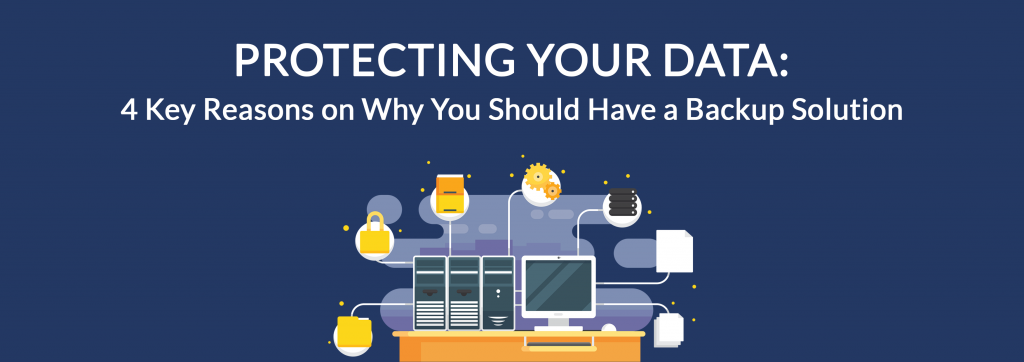Data is something all businesses would agree is their most important asset, this is why they take multiple steps to ensure its security. However, when it comes to data protection, most companies are lax in its measures in the Philippines. This is alarming as data loss is not as uncommon to businesses as most seem to believe. Below are a few common scenarios in which a Backup solution can immediately address

User Error
One of the highest reason of data loss can be attributed to user mistakes or error. In multiple surveys, human error is at 25% of data loss. This could be from accidental deletion or even accidental overwrites. With a proper backup, you can always revert to it to find the data or even go through different versions of files.

Data Corruption
Files can become corrupted due to bugs or even malware without a moments notice. Backup solutions can help safeguard your data from this spontaneous data loss.

Hard Drive Failure
Just like data corruption, your hard drive can fail due to multiple reasons. With no proper backup in place, this can mean important data can be lost indefinitely.

Retention and Archiving
Some businesses need long data retention or historical archiving of files. This is to ensure proper auditing, or a need arises that the data must be pulled out for review. Backup solutions can be customized to solve these requirements.
Does BCDR = Backup?
There are multiple steps in creating a data protection strategy, the first step being to put a backup solution in place and the last step being to have a BCDR plan. This goes without saying, you should not jump in steps when you are implementing a data protection strategy.
BCDR strategy is not a replacement for a backup solution.
The key difference between the two is how the recovery is done. Without the initial backup solution, how can you plan for disaster recovery when the first step of protecting your data for day-to-day activities is not yet in place?
BCDR is reserved only for cases when disasters occur that would cause business operations to halt. An example of this would be from natural disasters such as fires that would cause your servers to become inoperable, and the entire database will need to be recovered.
While preparing for a disaster is important, ensuring that your data is protected from more common and recurring threats should come first. Short term goals should first be implemented to help achieve your long term goals in data protection.
To learn more about Backup solutions, you may send us a message via the form below!
By clicking “Submit,” you agree to our Privacy Policy and consent to the collection and use of your personal information as described therein.


One Response